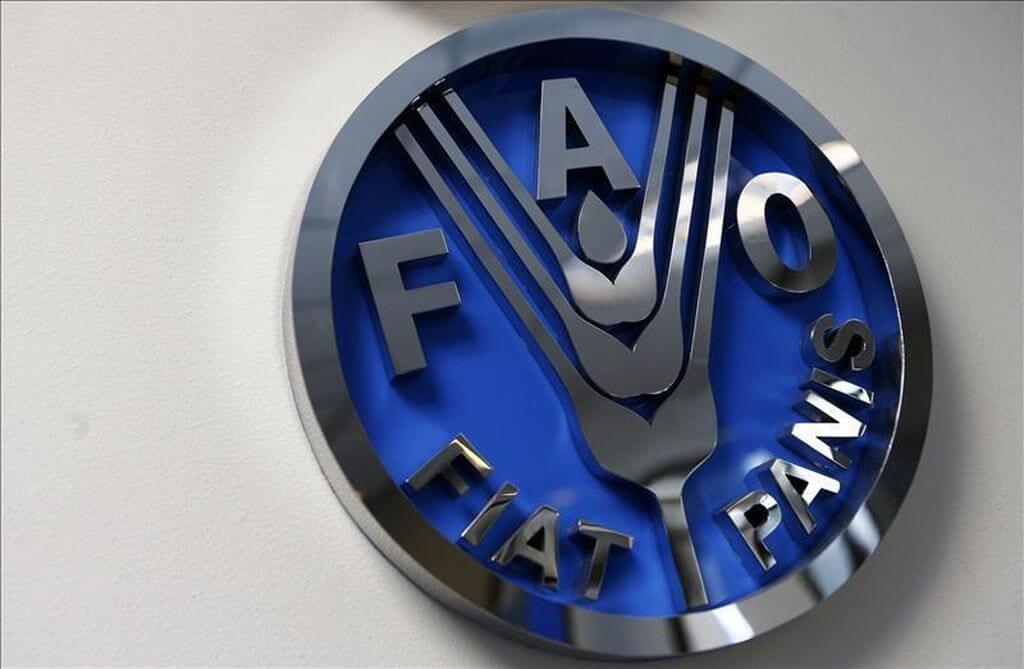Improved access to finance, better services and inputs for farmers, rural households, and agricultural cooperatives and other rural SMEs, as well as improved capacity of the Georgia’s Ministry of Environment Protection and Agriculture (MEPA) will make Georgia’s agricultural sector more competitive. That is exactly the objective of the new €12 million project under the third phase of EU-funded European Neighbourhood Programme for Agriculture and Rural Development (ENPARD), implemented by the Food and Agriculture Organization of the United Nations (FAO).
Today, an agreement for the five-year project – “FAO support to Georgian agricultural sector under ENPARD III” – was signed by Mr. Levan Davitashvili, the Minister of Environment Protection and Agriculture (MEPA) and Mr. Raimund Jehle, FAO Representative in Georgia. According to the agreement, FAO will be supporting the Ministry in effective policy-making and implementation of the Strategy for Agricultural Development 2015-2020. The project will address the implementation of pilot activities comprising various types of demonstration, information dissemination, engagement and other training activities for farmers. It also includes the provision of individual grants to small farmers, rural entrepreneurs, cooperatives and SMEs for investments to improve their overall competitiveness.
Since the inception of the first phase of ENPARD in 2013, FAO has been implementing projects in support of agricultural development in Georgia. The first two FAO-ENPARD projects provided technical assistance to the Ministry and general capacity development to the Ministry’s staff. Besides, FAO provided support for the implementation of specific components of the Strategy for Agricultural Development 2015-2020, namely: the development of agricultural cooperation, extension services, the improvement of statistical and analytical capacities, as well as value-chain development and climate smart agriculture. The new project under ENPARD III will be built on the results delivered by FAO throughout the first two phases of the programme.
″During ENPARD I and II, FAO developed the capacities of the national stakeholders. ENPARD III will capitalize on this. The new project will further reach out to the farmers and the processors to have better access to good agricultural practices, modern knowledge and technologies,″ said Jehle, FAO Representative in Georgia.
Project agreement signing ceremony was attended by the Programme Manager of the Delegation of European Union to Georgia, Attaché Mrs. Cristina Casella. She stressed the EU’s continuous commitment to help improve the lives of Georgian citizens through supporting agriculture and rural development in the country. “The agreement signed by FAO and the Ministry today is one of the first documents signed within ENPARD’s third phase, the launch of which was officially announced by the Prime Minister and the EU Ambassador in December last year. Since the beginning of ENPARD programme in 2013, EU has provided extensive support to agriculture and rural development in Georgia. Over the past years, we have strongly and consistently assisted the government in building the capacity of relevant institutions and improving the policy-making and implementation. In the past years, ENPARD has generated new production models and stimulated modern services in agriculture. According to our estimate, around one third of Georgians in rural areas have benefitted by some means from the programme. Within the recently launched third phase of ENPARD, we continue our policy and technical advice to the government to help make the agricultural sector more competitive.” – stated Cristina Casella.
The European Union is supporting rural development in Georgia through its ENPARD Programme. Aiming to reduce rural poverty, ENPARD has been implemented since 2013, with the total budget of €179.5 million. The first phase of ENPARD focused on developing the national agriculture potential, while the second and the third phases focus on creating economic opportunities for rural population that go beyond agricultural activities.




